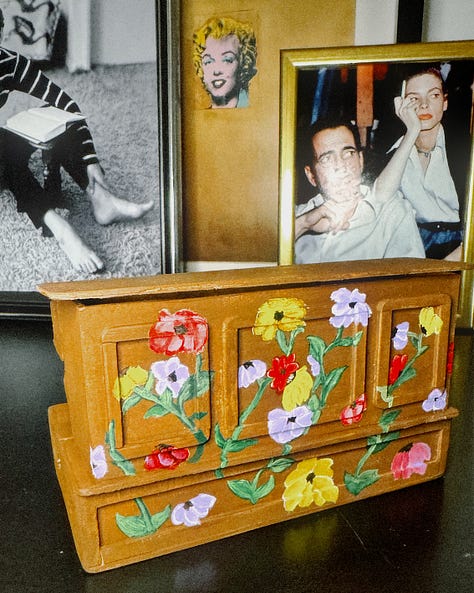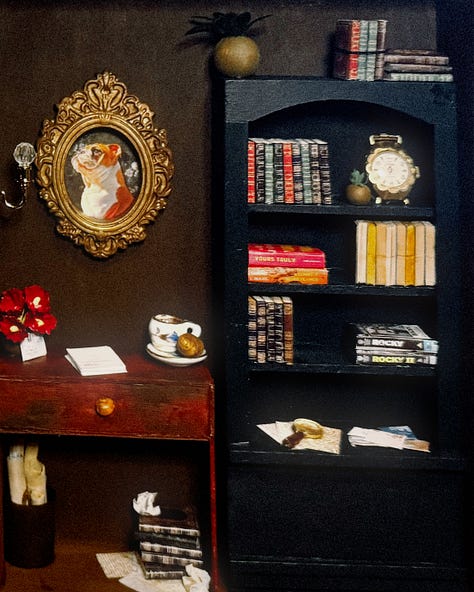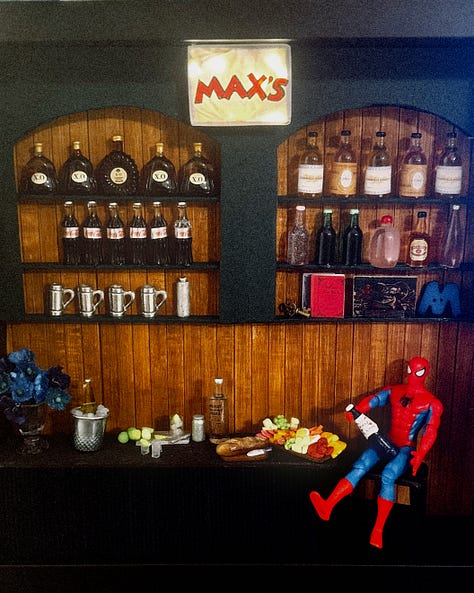Not Every Passion Needs a Price Tag
In defense of keeping some creativity sacred this year.
"You should sell this!"
It's become the reflexive response to any display of skill or creativity, as automatic as saying "bless you" after a sneeze. When did we decide that every talent needs to be transformed into a revenue stream? Does every moment of joy need to be optimized for profit?
Here's something most people don't know about me: I'm an art school dropout.
Not because I wasn't good enough or couldn't handle the workload but because I wanted to chase other dreams. It was my first significant life revision - a plot twist that reshaped how I saw creativity. Over the years, I've managed to monetize my art in various ways—writing, painting, gallery shows in Vancouver and London, large commissions, and even collaborations with big-name brands like Bailey Nelson and Bearface Whiskey. From the outside, it probably looked like I was living the dream and making money from my passion, unleashing my creativity while paying rent! The holy grail of millennial career achievement, right?
When did we decide that every talent needs to be transformed into a revenue stream? Does every moment of joy need to be optimized for profit?
But something happened around my fifth collection. The shift was initially subtle, then glaringly obvious: I stopped expressing myself and started calculating. Every brushstroke became a question of marketability. Every colour choice was filtered through the lens of what would sell. The joy of creation morphed into the anxiety of production. Gradually, my relationship with art began to sour. I started to resent the very thing I had always loved.
So I walked away, not from art itself; I loved it too much for that but from the pressure to make it profitable. I promised myself that while I still monetized some creative work, like filmmaking and writing, my physical art would be purely for myself and those I love (for the most part, I take on the random commission if it feels right.) The moment I made that decision, it felt like putting down a heavy backpack I hadn't even realized I was carrying.
Fast-forward a few years, and I discovered miniatures. There was something magical about how everyday objects could be transformed with a shift in perspective. A bottle cap isn't just trash; it's a perfectly sized bar stool waiting to happen. A popsicle stick contains multitudes: floorboards, window frames, and shelves. Miniatures became my secret meditation, a private joy I kept to myself until the creations became too delightful not to share with friends.



Social media has transformed 'doing what you love' from a privilege into a pressure, from an aspiration into an obligation.
Like clockwork, the questions and suggestions flowed: "How do you even do this?" "Where do you find the time?" And inevitably, always: "You could make serious money selling these."
That last comment kept nagging at me, (I initially had those thoughts as well), and it opened my eyes to something broader: we're living in an era where our relationship with creativity and joy is conditional. It's not enough to be good at something—you need to be monetizing it. It's not enough to enjoy a hobby—you need to be building a brand around it. Your workout routine needs to be a coaching program; your outfit photos should be a styling service; your morning routine must become a masterclass and your travel photos? Those better be monetized as custom itineraries.
This mindset runs deeper than career advice or entrepreneurship, it's rewired how we think about value. We've internalized the idea that worth is measured in dollars, that time is wasted if it doesn't generate income, and that talents are squandered if they're not profitable. This mindset has created a generation of people who feel guilty for having hobbies that don't generate a side income and who feel “wasting" their skills if they don't turn them into a business.
Not everything we love needs to become a side hustle. Not every passion needs to be profitable.
But here's what that mindset costs us: the pure, uncomplicated joy of creating without consequence, the freedom to experiment, to fail, to make something absolutely hideous just because we want to, and the ability to love something without needing it to love us back in the form of dollar signs.
There's a special kind of peace in making something, knowing it will never be for sale. In my case, it's building tiny worlds that exist purely because I wanted them to exist. My miniature creations—with their bottle-cap bar stools and popsicle-stick floorboards—live on my desk, my shelves and my friends' coffee tables. They're gifts given freely, made with no purpose beyond the joy of making them. And maybe that's enough. Perhaps that's more than enough.
Not everything we love needs to become a side hustle. Not every passion needs to be profitable. Sometimes, the most valuable things we create are the ones we never put a price tag on.
And in a world obsessed with monetizing every moment, that might be the most revolutionary act of all.



This post is so insightful and almost too real. I often need to check myself to make sure that I am creating and not producing. Thanks for this. I needed this one today.